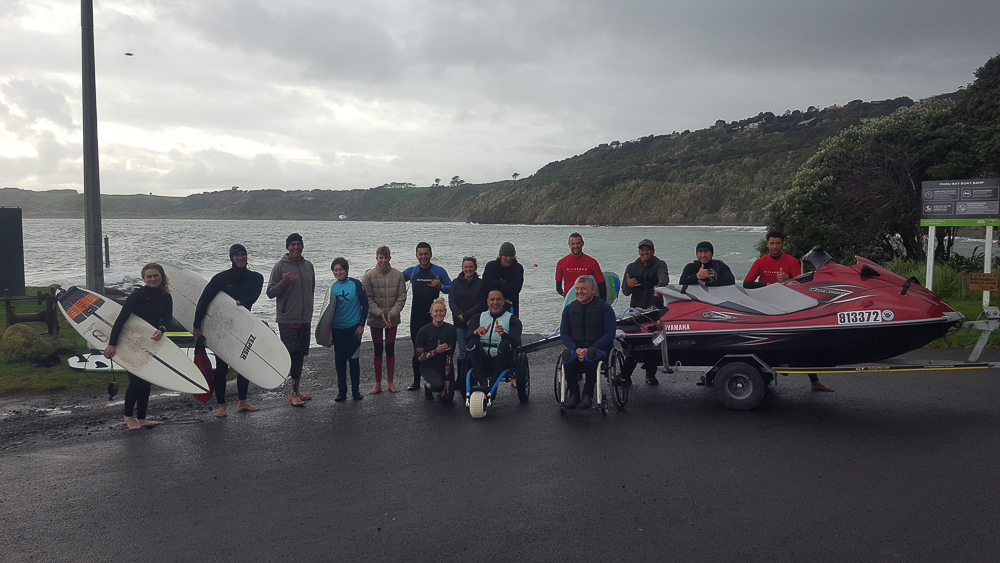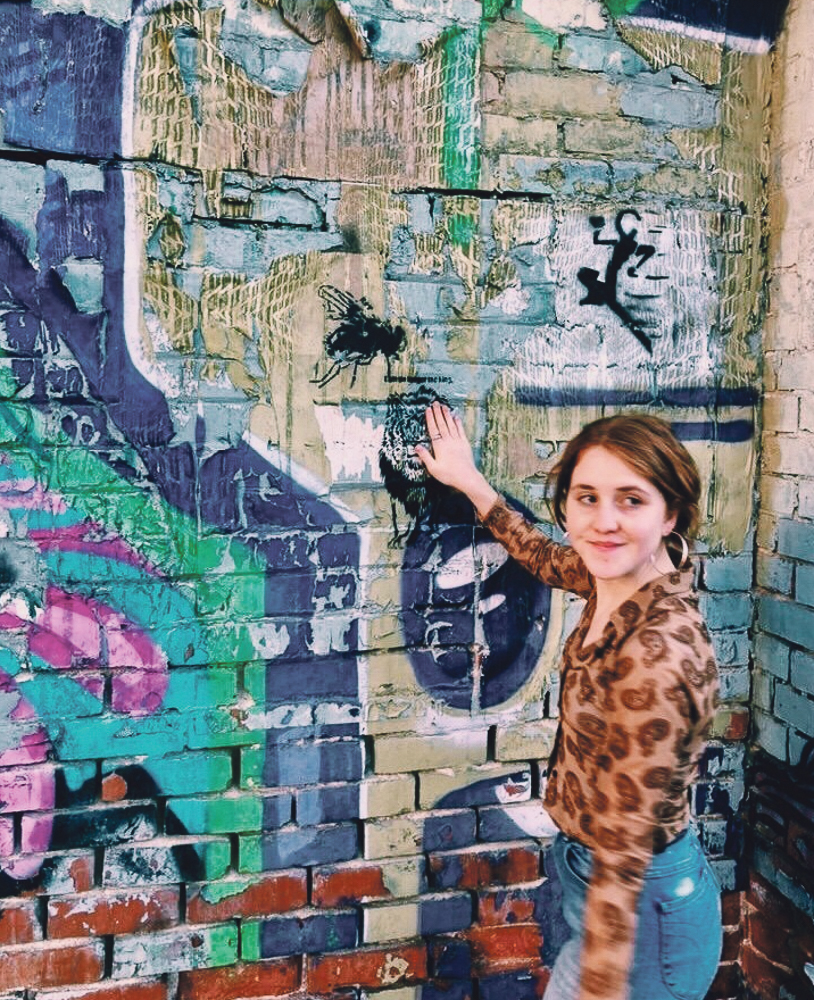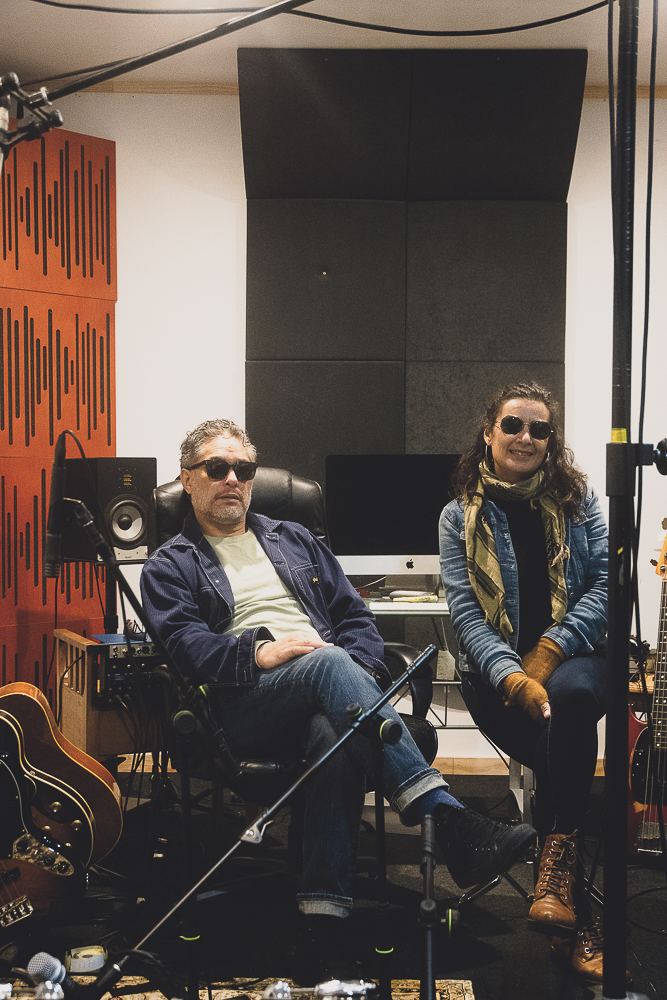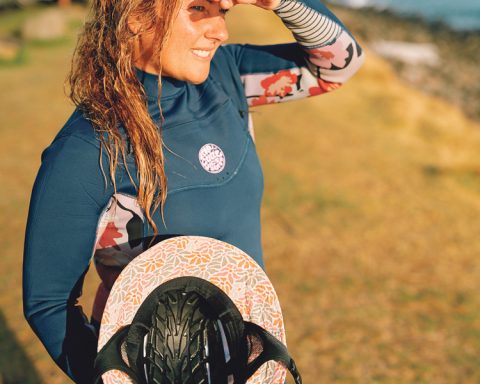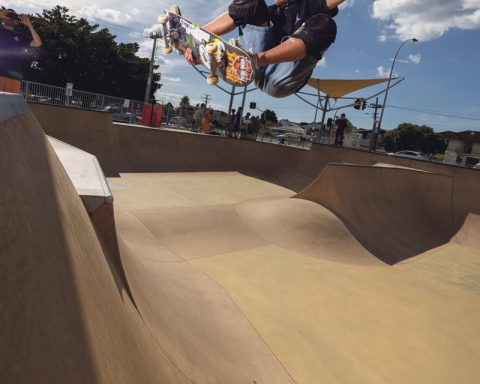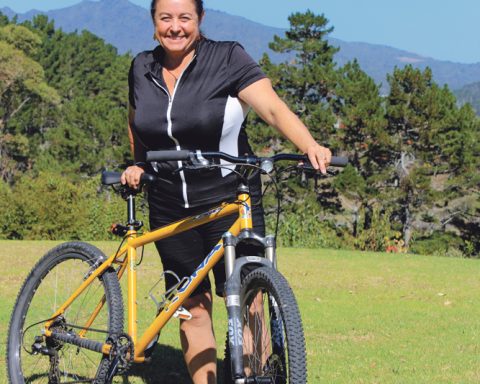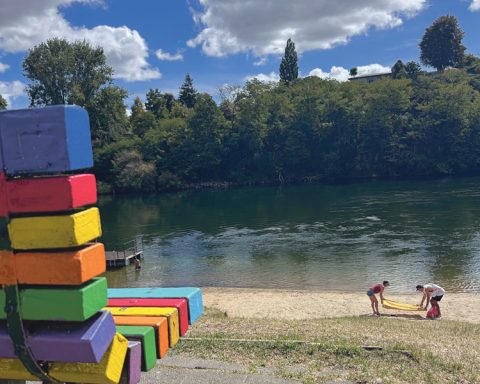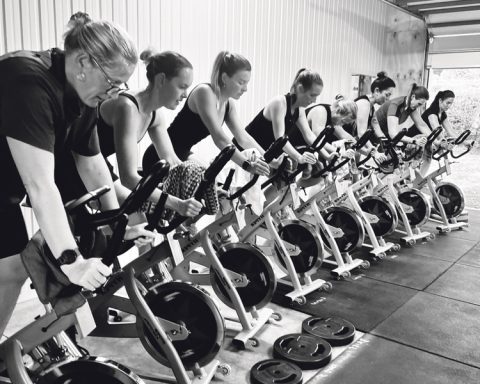Keen boardriders will go to almost any lengths to catch a wave but a group of five adaptive surfers took the challenge to a whole new level at Manu Bay recently.
As their coach and local surfing legend Daniel Kereopa observed, they couldn’t just launch themselves off Jump Rock – as most surfers do at Raglan’s famed left hand break – but had to find some other way into the water.
For several that meant getting down the boat ramp with a prosthetic leg, while for others it was about abandoning wheelchairs at the end of the ramp then maneuvering themselves over the concrete and into the water to surf while lying on their boards.
Daniel – or DK as he’s better known locally – was blown away by the gutsy attitude of the group. “We just take it all (getting out in the surf) for granted if we haven’t got a disability,” he told the Chronicle.
The five surfers were at Manu Bay on their first training day for the ISA World Para Surfing Championship in December at Pismo Beach in California. A second training day is planned at the Mount later this month.
DK says he’s totally committed to overseeing the group’s coaching regime.
“It was the beginning of a relationship with these athletes,” he says. “I want to see them progress, which means understanding each of them physically and mentally.”
He reckons he came away from that first training session feeling like it was one of the most rewarding things he’s ever done.
While DK offers programmes and private tutoring through his own surf schools in Raglan and Orewa – and coaching individuals with disabilities is not new to him – this is the first time he’s coached a group of adaptive surfers.
To train them to “top end” level is a big challenge, he admits, but one made a lot earlier by Te Uku adaptive surfer Bruce Campbell’s work in bringing the team together and setting the goals.
Bruce, who’s now 50, has surfed with a prosthetic leg for 15-odd years and in 2019 came third in the standing lower limb division of the Bali Adaptive Pro.
Surfing is recognised as therapy, Bruce says, so getting adaptive people – especially young ones who surfed before losing a limb, for instance – back into the water “makes them feel normal again”.
In his role as development officer for Adaptive Surfing New Zealand, Bruce says he “looks for talent” at the likes of the Halberg Foundation’s regular ‘Have A Go’ days, and in this way has brought the group of promising boardriders together.
For all that getting into the surf at Manu Bay has its challenges, he says, they are nothing compared with the obstacles typically presented by a beach break. “A beach is hugely difficult,” Bruce explains, pointing out the difficulty using wheelchairs on less-than-hard surfaces.
And at least no-one lost a prosthetic leg at Manu Bay, he quips. “They have a horrible tendency to come off in the water,” he says in all seriousness.
Bruce insists it was only when he learnt how to keep his leg on in the water that he could actually make any headway as an adaptive surfer.
While Bruce couldn’t surf himself at Manu Bay on the training day because of a head injury that required stitches, he was one of at least a dozen supporters on hand to help out. That included local lifeguard and surfer Chris Malone and DK’s adult son Cabe, who assisted with coaching and safety procedures.
Also on hand were Raglan West couple Christine and Wayne Trott, who both compete in adaptive waka ama races and who brought home three silver medals in 2018 from the IVF Va’a World Distance Championships in Tahiti.
“They were such a help,” Bruce says of their expertise and enthusiasm for adaptive sports.
DK had also arranged with Raglan Surf Emporium for the use of its jetski to tow the adaptive surfers out to where the waves were breaking. While they were all capable of paddling out themselves, this meant their energies could go into catching at least two waves in 20-minute time segments, emulating competition heats.
“I wanted to make the day really worthwhile for them,” DK says.
• Adaptive surfing, as both a lifestyle and competitive activity, is fast growing worldwide with prospects of becoming a Paralympic sport.
